Weather Teaching Resources
Browse printable weather worksheets, activities, science vocabulary resources, experiments for kids, resources about floods and natural disasters and more ideas for teaching students in primary school about the weather outside your classroom and around the world.
This collection of curriculum-aligned weather teaching resources was created by teachers with teachers in mind. That means every printable and digital resource has been carefully checked by a member of our expert teacher team to ensure it's classroom-ready, so you save time on your lesson plans!
Looking to get started on the weather, or just need more ways to make this science topic more engaging in your classroom? Read on for a primer from our teacher team!
What Is Weather? A Kid-Friendly Definition
When it comes to defining weather for students, here's a kid-friendly definition you can use to explain what weather is:
Weather refers to the conditions in the Earth's atmosphere, such as temperature, wind, precipitation and cloudiness. The weather outside your classroom or home is affected by many things, including the amount of sunlight reaching the Earth's surface, the rotation of the Earth and the presence of water vapour in the atmosphere.
Weather can change rapidly, and it can be unpredictable, so it's important to stay informed about current weather conditions and be prepared for different types of weather.
What Is Weather Science?
Meteorology — also known as weather science — is the study of the Earth's atmosphere and the weather conditions that occur within it. This includes studying temperature, air pressure, wind, precipitation and other atmospheric phenomena.
Weather scientists known as meteorologists use a variety of tools, such as satellites, radar and weather balloons, to collect data about the atmosphere and predict what the weather will be like in the future. These predictions are called weather forecasts and help us decide what to wear or how to plan for outdoor activities that might be affected by rain or excessive heat.
Weather science isn't just important for telling us what to wear, however! It helps us prepare for extreme weather events, provides important information for transportation and aviation safety and helps scientists better understand the Earth's climate.
Students can act as amateur meteorologists as they learn to record weather information to keep track of what is going on outside of your classroom, including relative temperatures such as hot or cold, clear or cloudy, calm or windy and rainy or icy!
Is Climate the Same as Weather?
The two words are often used interchangeably, but it's important to impress upon your students that weather and climate are two very different things!
Weather, as we already explained, deals with the conditions of Earth's atmosphere at any given time. It can be termed as the short-term atmospheric conditions of a specific place — such as temperature, wind, humidity, precipitation and cloud cover — over a short period of time, usually a few hours or days.
Climate, on the other hand, is a look at those conditions over a long period of time. It can be termed as the long-term average weather patterns of a specific region or location, usually over a period of at least 30 years.
What Do Kids Need to Learn About Weather?
Weather is a broad, broad topic — to say the least! So what's going on during primary school weather lessons? Before kids move on to high school, they should have a basic understanding of the different elements that make up the weather and how they interact with each other. They'll also need to understand weather forecasts and how to use them to plan.
With that in mind, here are the biggest topics to cover:
- Temperature — Learning how to measure temperature using a thermometer and how temperature changes over time, as well as the difference between Celsius and Fahrenheit, are part of weather lessons at this stage of kids' education.
- Precipitation — Young students learn about different types of precipitation — such as rain, snow, sleet and hail — and how they form in the atmosphere.
- Wind — Wind direction and speed, how wind is measured and how it affects the weather should all be covered before kids head off to secondary school.
- Clouds — From cumulus to strato-form, students learn about the different types of clouds and how they form plus how clouds affect the weather.
- Extreme Weather — Extreme weather events such as hurricanes, floods and thunderstorms are typically part of the science curriculum at this stage, and depending on where you are teaching instruction on how to stay safe during these events may well be on the agenda.
- Free Plan
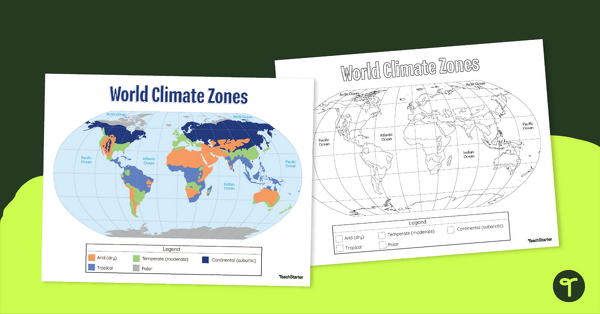
Map of the World's Climate Zones
Display this climate zone map in your classroom while teaching about the 6 climate types.
- Plus Plan
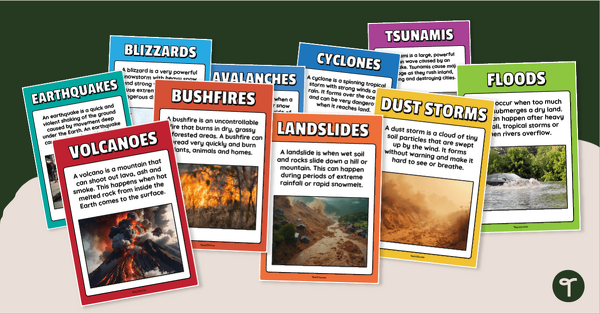
Natural Disaster Posters for Kids
Introduce and explain different types of natural disasters with printable natural disaster posters.
- Plus Plan
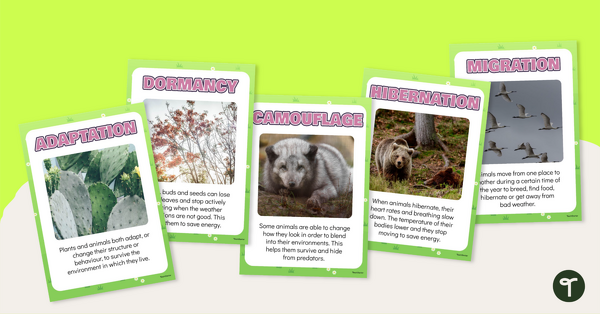
How Seasons Affect Plants and Animals Poster Set
Display these informative posters in your Grade One classroom to remind students of the five ways animals and plants adapt to seasonal changes in their environment.
- Plus Plan
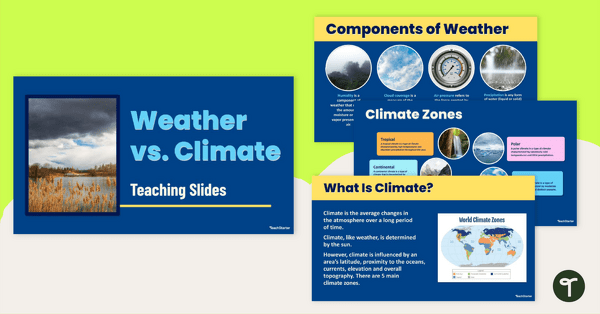
Weather vs. Climate – Teaching Slides and Guided Notes
Teach your students the difference between climate and weather with this set of teaching slides and accompanying guided notes.
- Plus Plan
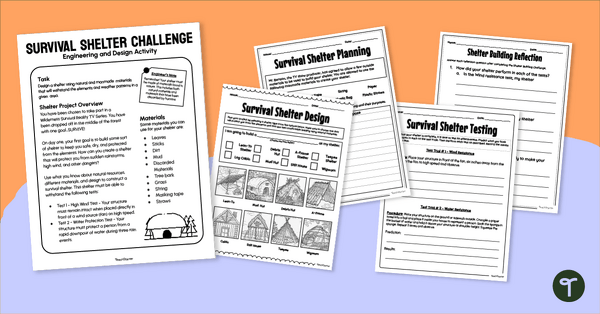
Severe Weather STEM - Build a Storm Shelter Project
Design a storm shelter to protect against wind and rain with a hands-on Weather Stem Challenge.
- Plus Plan
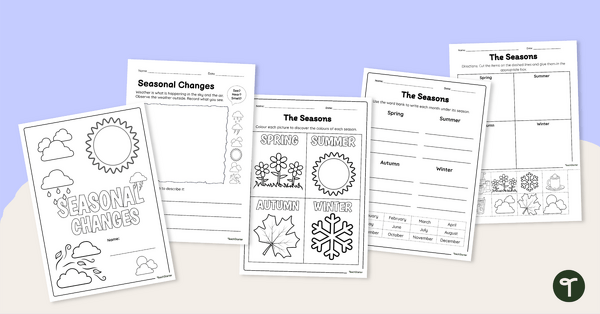
Seasonal Changes Worksheets
Engage your young learners with this set of fun season worksheets. Included are 12 activities to keep them learning!
- Plus Plan
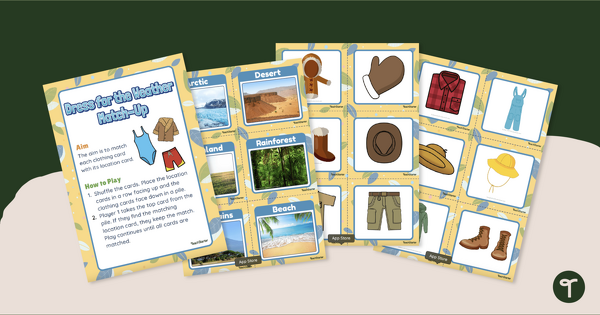
Dress for the Weather Match-Up Activity
Identify proper clothing choices for different weather conditions with a clothing and climate matching activity.
- Plus Plan
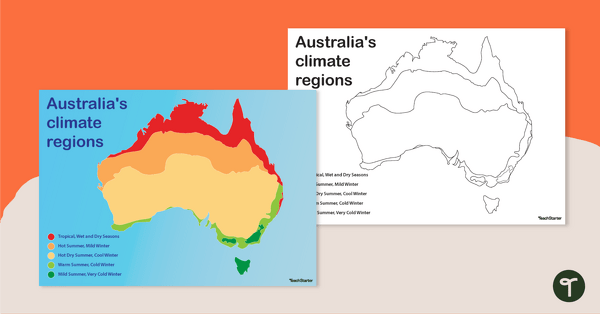
Australian Climate Regions Poster and Worksheet
A poster and a worksheet outlining the climate regions in Australia.
- Plus Plan
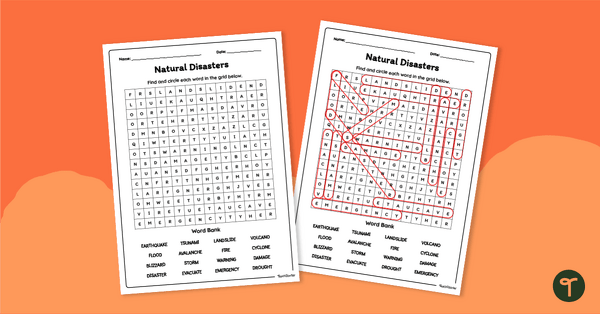
Natural Disasters Word Search
Use a Natural Disasters word search to introduce your students to the vocabulary surrounding these destructive acts of nature.
- Plus Plan
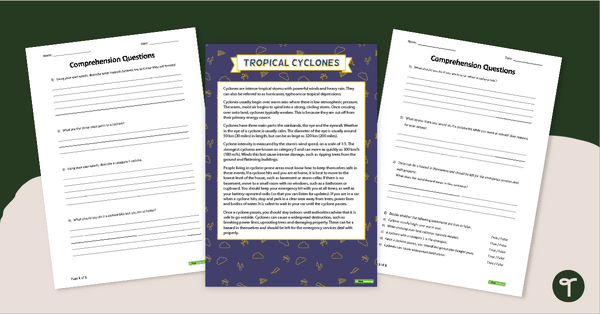
Tropical Cyclone Worksheet - Year 5/6 Comprehension
Use our Tropical Cyclone worksheet pack to teach your students about natural disasters.
- Plus Plan
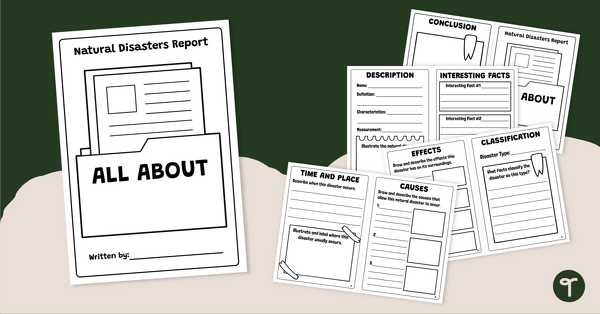
Natural Disasters Report – Mini Book Template
Download this natural disasters information report template to use when teaching informative writing to primary students.
- Plus Plan
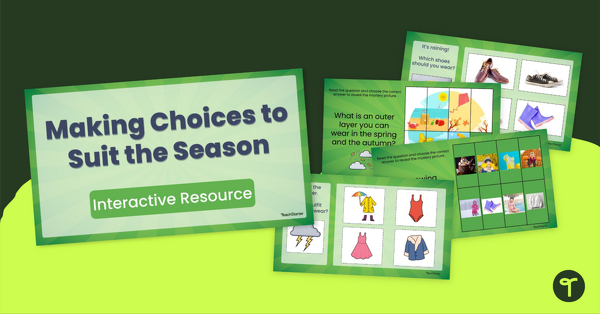
Seasons, Weather and Our Choices Interactive Activity
Complete this whole-class interactive activity to teach students the connection between the seasonal conditions and their daily choices.
- Free Plan
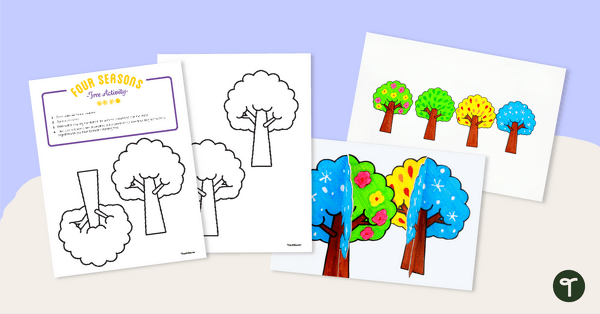
Four Seasons Tree Activity
Create a visual representation of the 4 seasons with a printable tree template.
- Plus Plan
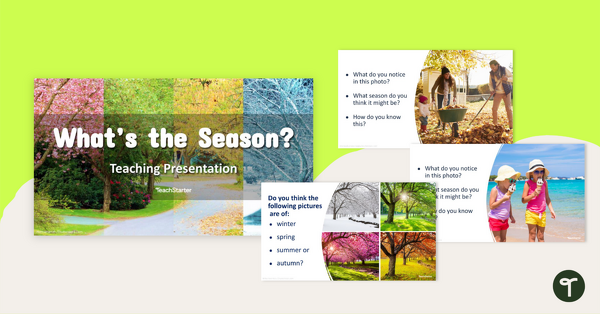
What's the Season? Teaching Slides
Use this teaching presentation to help your students explore the four seasons and how they affect everyday life.
- Plus Plan
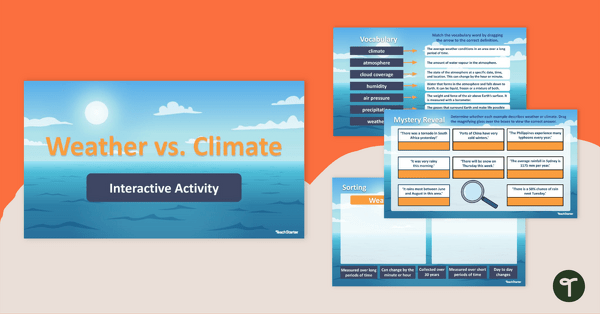
Weather vs. Climate – Interactive Activity
Strengthen student understanding of weather and climate with this interactive activity.
- Free Plan
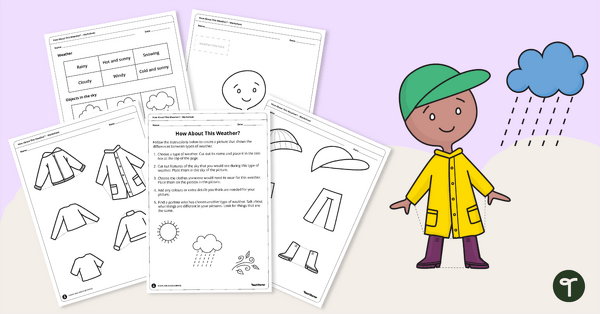
How About This Weather? - Worksheet
Explore different types of weather and subsequent observable changes with this 5-page worksheet pack.
- Plus Plan
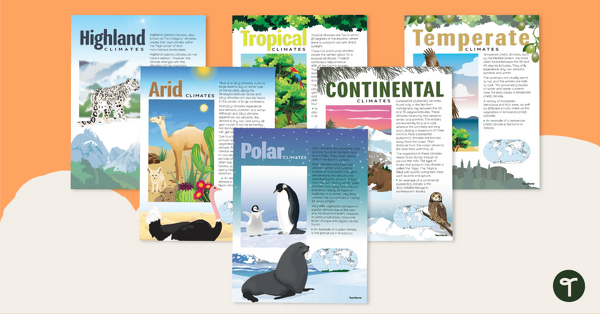
Climate Zones of the World – Poster Pack
Learn about different climate types with this set of 6 printable posters.
- Plus Plan
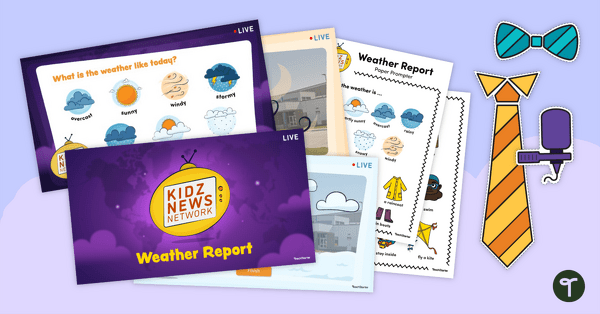
Daily Weather Report – Interactive PowerPoint
Encourage your students to become weather reporters with this interactive weather activity.
- Free Plan
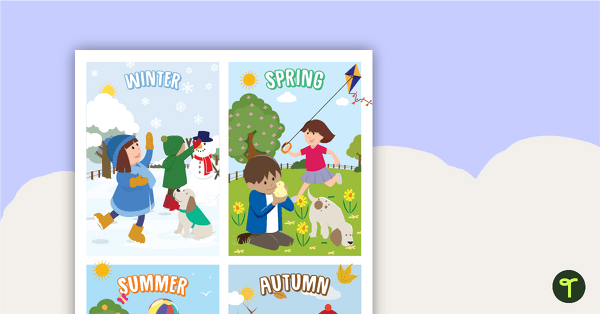
The Seasons - Posters
A set of beautifully illustrated posters that depict the seasons and the differences between them.
- Plus Plan
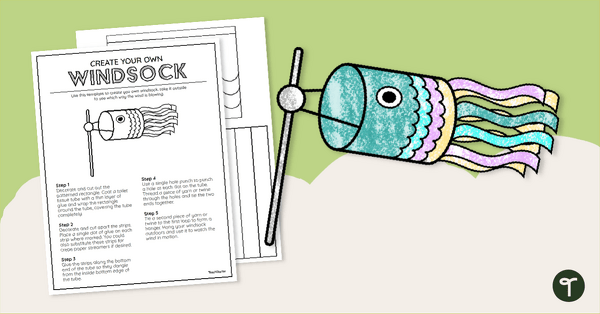
Fish Windsock Craft Template
Create a fun wind sock with our Fish Windsock Craft Template.
- Plus Plan
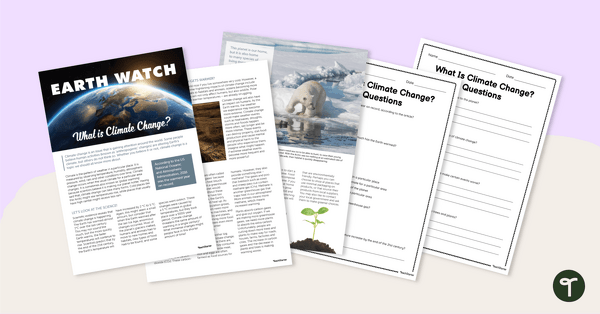
What Is Climate Change? Comprehension Worksheet
Teach your students about the perils of climate change with this comprehensive article with accompanying comprehension questions.
- Plus Plan
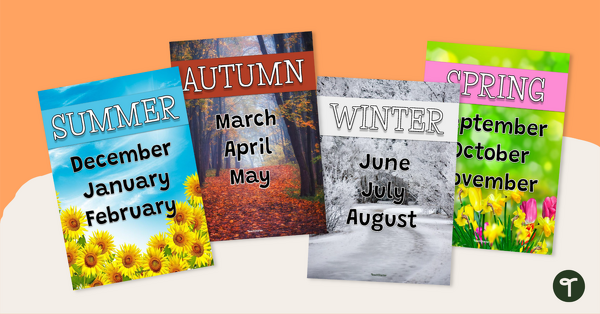
Seasons and Months Posters
Use these four months and the seasons posters to help your students to learn the seasons and their corresponding months.
- Plus Plan
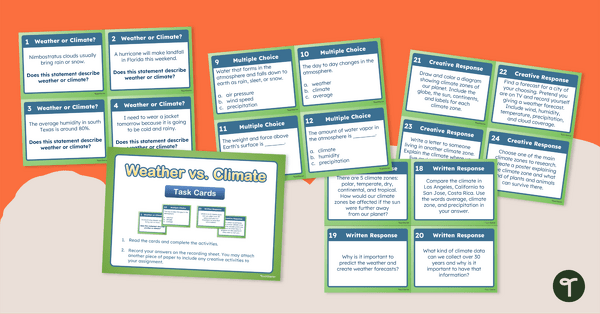
Weather vs. Climate – Task Cards
Differentiate between weather and climate by answering questions and responding to writing prompts and with this set of 24 task cards.
- Free Plan
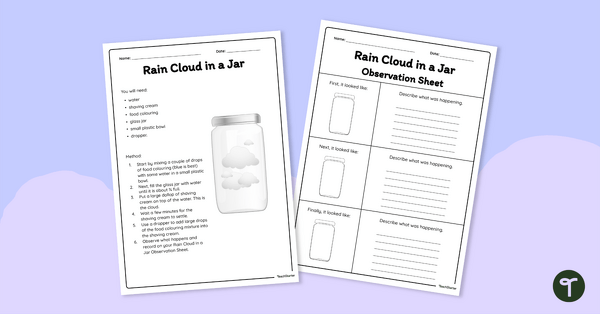
Rain Cloud in a Jar Experiment
Use this science experiment when learning about the different types and features of clouds and how they contribute to the water cycle.
- Plus Plan
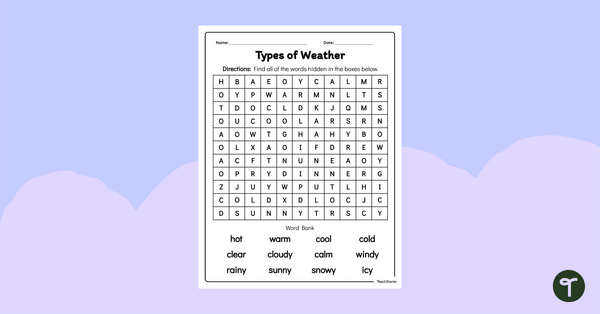
Types of Weather – Word Search
Review science vocabulary terms with an engaging weather word search.
- Free Plan
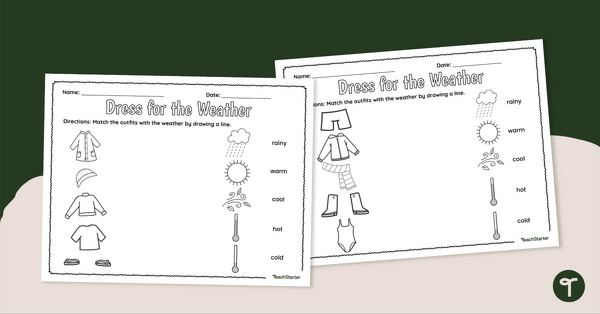
Dress for the Weather Worksheet
Identify proper clothing choices for different weather conditions with this worksheet.
- Plus Plan
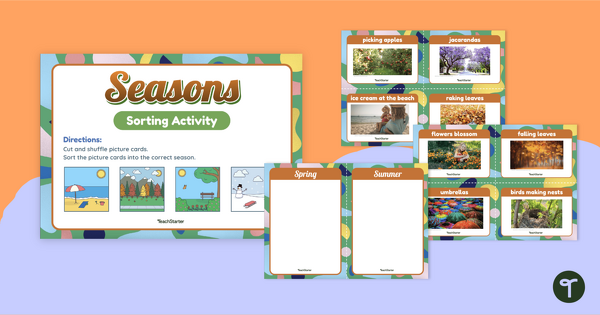
Seasons of the Year Sorting Activity
Year 1 students can identify proper clothing, activities and objects for different types of weather with this four seasons activity.
- Plus Plan
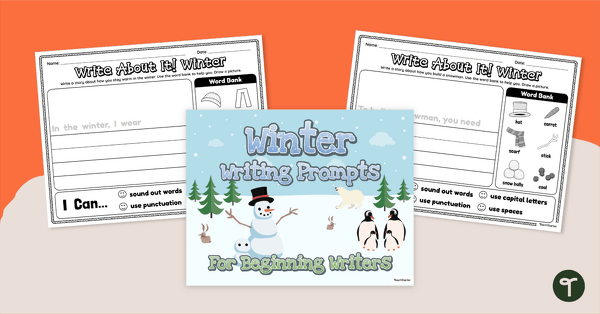
Winter Writing Prompts for Beginning Writers
Use the season of winter to inspire writing in your early years classroom.
- Plus Plan
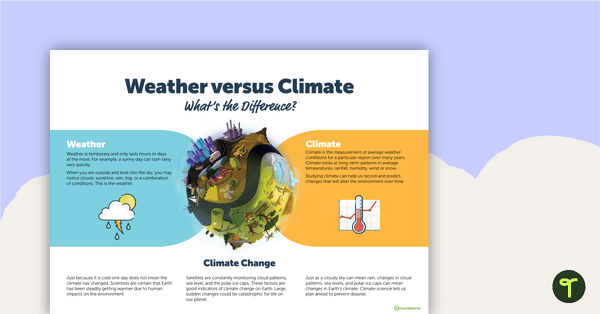
Weather versus Climate Poster
A poster explaining the difference between weather and climate.
- Free Plan
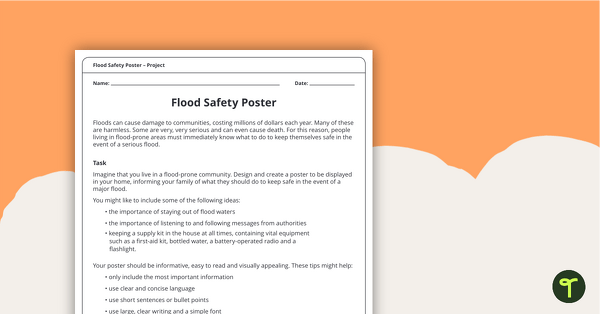
Flood Safety Poster - Design and Create Task
A design and create task for students to demonstrate their understanding of the impact of floods.
- Plus Plan
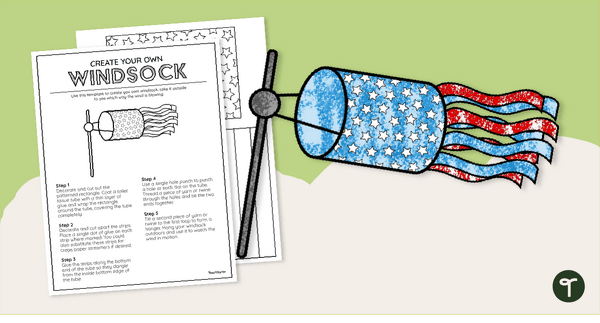
Printable Windsock Craft Template - Stars
Make a fun Windsock Craft to observe wind movement inside and outside the classroom.
- Free Plan
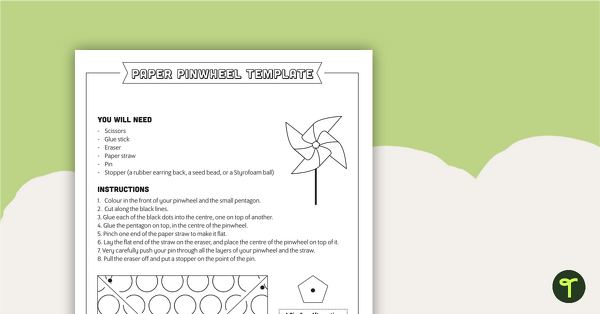
Pinwheel Template
Use our printable pinwheel template to introduce your students to the science of wind and motion!